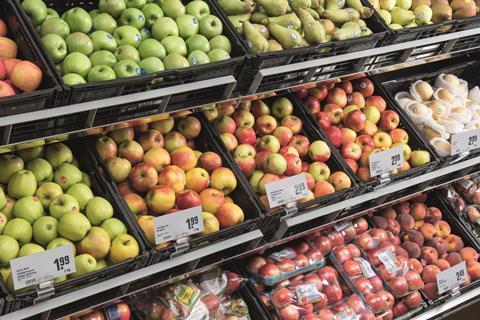Franklin Associates study shows Ifco’s reusable packaging containers outperform single-use packaging across all measured environmental categories, providing measurable progress toward sustainability goals

An updated 2025 Life Cycle Assessment prepared for RPC specialist Ifco has ”scientifically demonstrated” the advantages of reusable packaging containers (RPCs) in North America.
The study was conducted by Franklin Associates, a division of Eastern Research Group and a recognised pioneer in the field of environmental life cycle studies.
To ensure even greater accuracy and transparency, the LCA was peer reviewed by Dr Shelie Miller, of the Center for Sustainable Systems at the School for Environment and Sustainability at the University of Michigan, in accordance with ISO 14040 and 14044 standards.
It is an update to previous versions released in 2013 and 2017, Ifco outlined.
”The updated Life Cycle Assessment from Franklin Associates confirms what growers and retailers have seen firsthand: reusable packaging brings sustainability benefits and more,” it noted.
”Fresh fruits and vegetables are essential to healthy lives, but the way they’re packaged often comes at a cost to the planet.
”From wasted water and excess energy to rising greenhouse gas emissions, produce packaging choices can make or break the sustainability goals of the fresh grocery supply chain,” Ifco said.
The 2025 North America LCA compared Ifco reusable packaging with single-use packaging across key environmental categories.
The results, the group said, tell a “compelling story”.
”Together, these numbers show a packaging system that is not just better – but consistently better over time,” Ifco commented, with RPCs outperforming single-use packaging “in all measured environmental categories”.
“Every avocado, every head of lettuce, every bunch of broccoli that travels in an Ifco RPC leaves a lighter footprint on the planet,” said Iñigo Canalejo, vice president of ESG and strategic marketing at Ifco.
”This updated study proves again that when our customers choose Ifco reusable packaging containers, they’re choosing measurable progress toward their sustainability and waste reduction goals.”
Comparative LCAs are a standardised approach without bias that guide end users to make the right decision based on science and facts.
”In a time when sustainability commitments are under the spotlight, reusable packaging containers give the fresh food industry a practical way to lower emissions, cut costs, and reduce waste – without compromise,” Ifco added.



